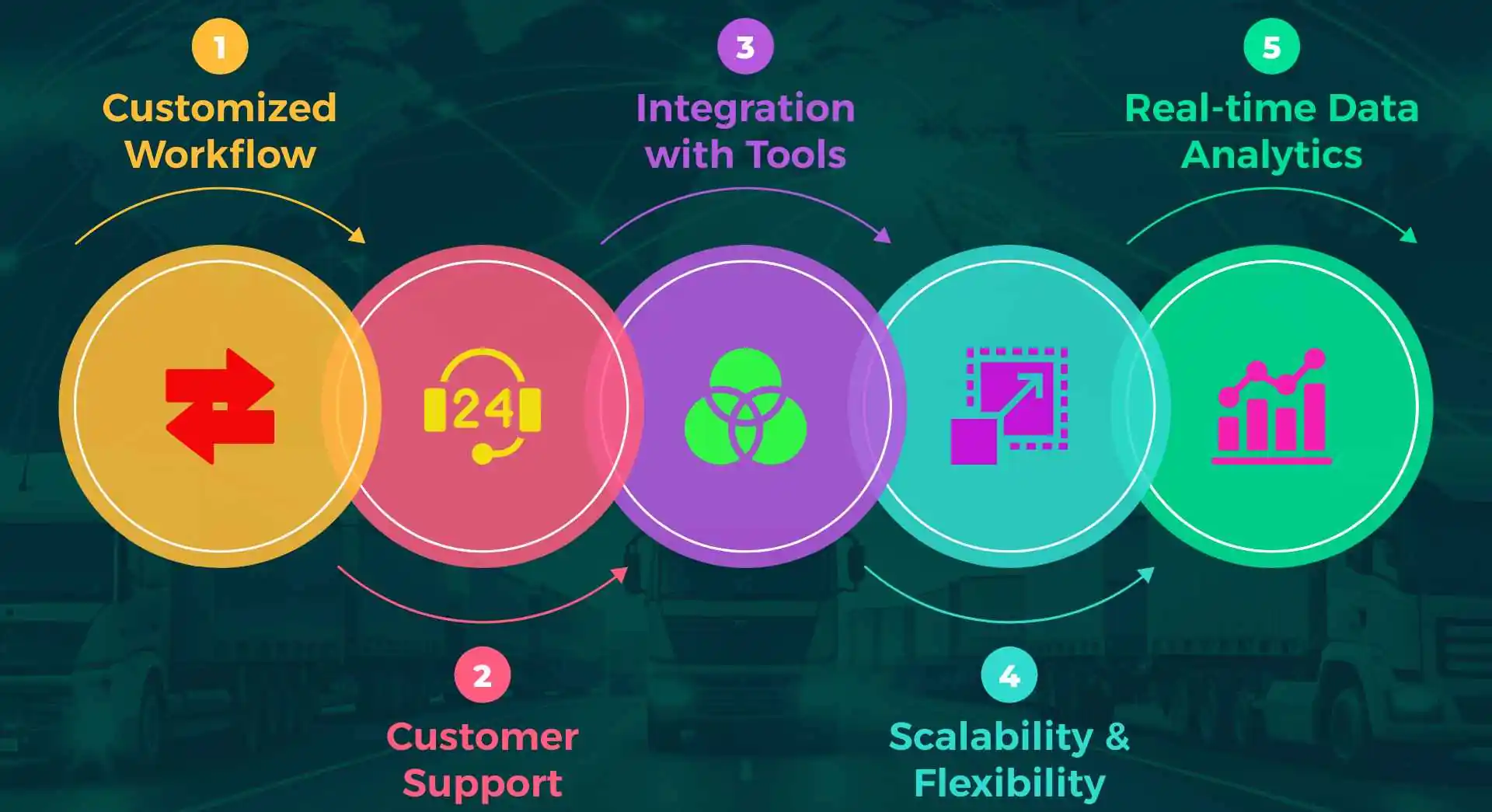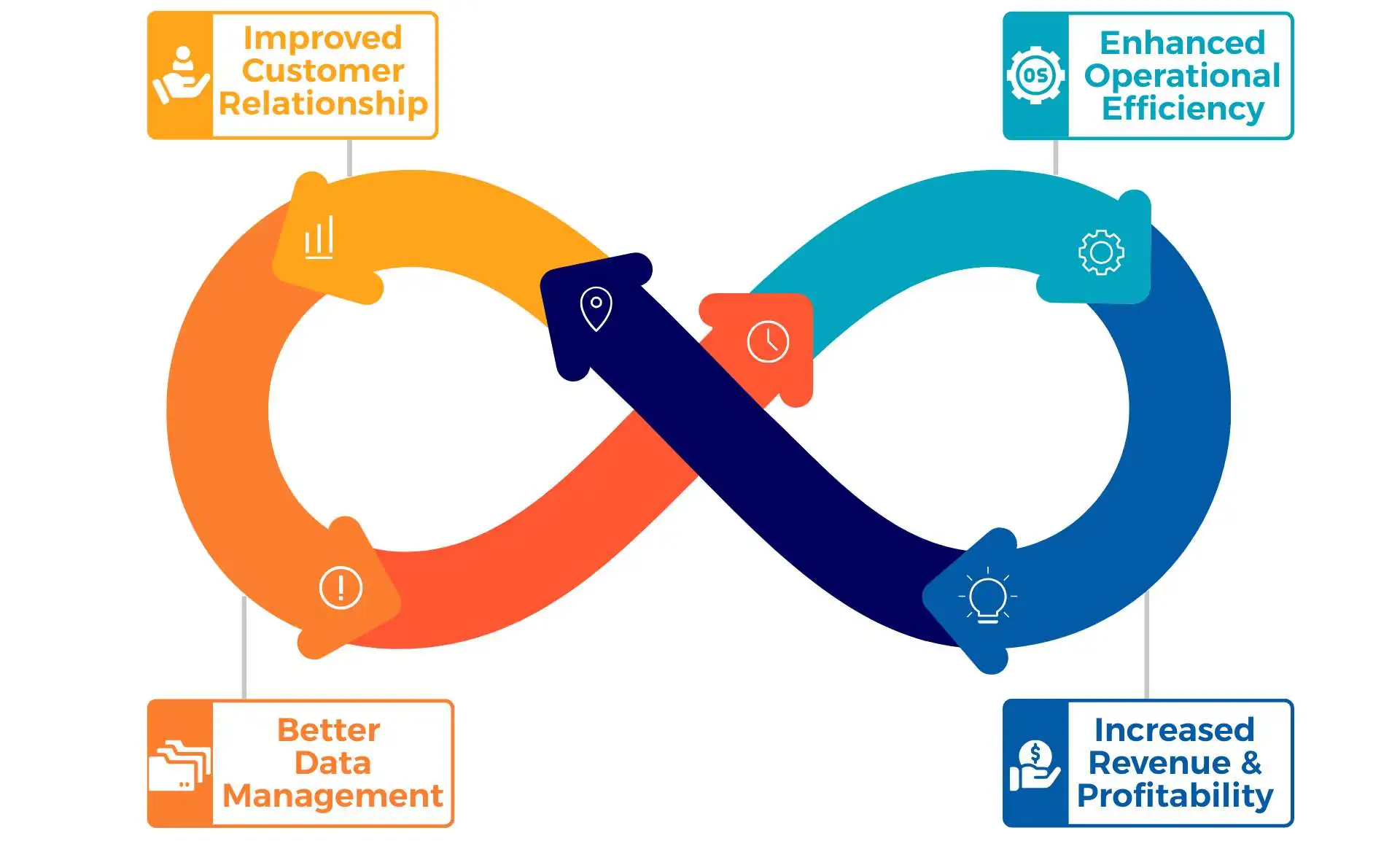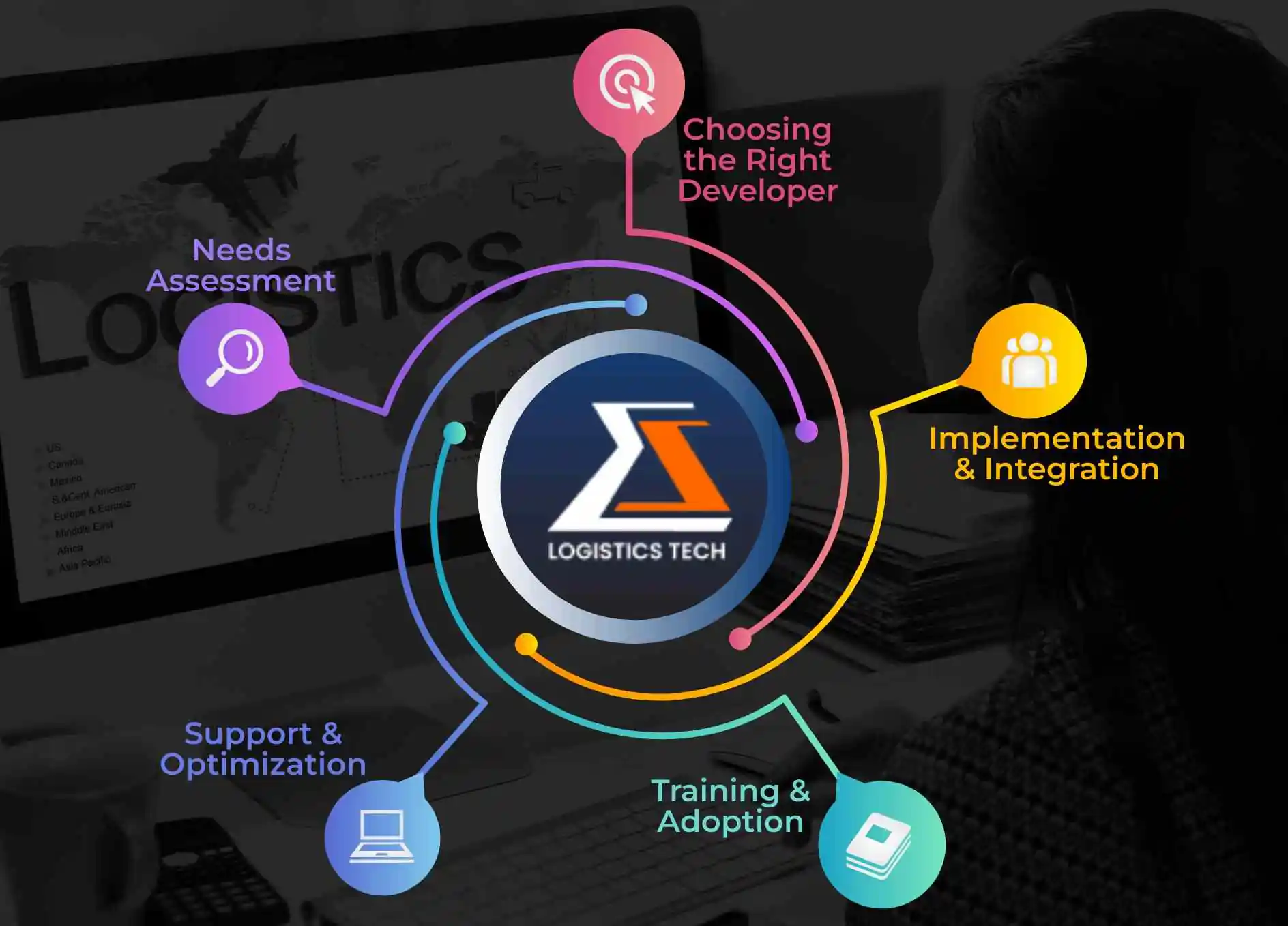Why Your Logistics Business Needs Custom CRM Software
Introduction
Managing customer relationships is one of the competitive success factors outlining the pace in the modern flow of goods logistics. Our tailored logistics CRM software brings a paradigm shift in the growth momentum of your business.
The relationship between customers and logistics companies, their operation, and the management of huge quantities of information are some challenges that are usually faced. Such challenges can result in time wastage and loss-making situations down the line.
These challenges can be solved by a custom CRM for logistics that will help to simplify the work, improve communication, and give useful information for decision-making.
This article seeks to explain why logistics businesses require to adopt bespoke CRM software for logistics companies to attain competitive advantage, improve customer satisfaction, and foster growth in the era of e-commerce.
The logistics and supply chain industry is presently experiencing significant digitalization, particularly custom CRM development for logistics.
Understanding CRM Software in Logistics
What is CRM Software?
CRM stands for Customer Relationship Management, one type of technology solution that provides tools for the organization to track and analyze many kinds of data from customers at different stages of their life cycle of interaction with the firm.
Logistics management software is used to manage data and interactions in relation to clients together with other activities related to the company and its clients towards enhancing customer relations and growth.
The Role of CRM in the Logistics Industry
In the context of logistics, CRM software is a tool that enables a company to relate with customers and manage supply chain networks as well as equipment used in shipment. It is the central point for all information and activities that relate to the company’s customers.
Sophisticated logistics CRM systems are useful to logistics firms since they foster efficient operations while at the same time improving communication with customers and helping businesses toward making informed and accurate decisions that can lead to greater customer satisfaction.
Key Features of Custom Logistics CRM Software

Customized Workflow Management
Every business has its specificities, and logistics is no exception, so having additional logistics CRM software that will exclude manual work and organize the already existing ones will increase the speed and effectiveness of the operation.
Some of the applications are order management, shipment management, inventory management, and route management, which are all business processes tailored.
Integration with Logistics Tools
Custom software development entails the customer relationship management system with the transportation management system, and the warehouse management system is one method to establish an efficient connection between the logistics systems.
This integration affords better data quality, less data isolation, and the ability to update all systems in real-time, regardless of where the data is used, therefore improving business operations.
Real-time Data and Analytics
The concept of real-time data and analytics is instrumental in supporting high-speed decision-making across logistics organizations.
CRM Software for logistics companies generates customers’ behavioral patterns and shipment operational reports to initiate and strategize problem-solving activities.
Customer Communication and Support
Logistics business software improves the other communication interfaces with customers by making them deliver timely and personalized information.
Usability concerning alerts, customer-accessible interfaces, and individualized communication fosters customer satisfaction and retention.
Scalability and Flexibility
A flexible CRM solution is important for larger contact growth without having to redesign the entire system constantly.
Custom CRM for logistics has the advantage of adding or excluding functions that relate to the logistics business as the business adapts and grows, meaning that the software is always relevant to that business.
Benefits of Using Custom CRM Software for Logistics

Improved Customer Relationship Management
Custom CRM facilitates the establishment of long-term relationships with customers as it leads to service personalization and quick responses.
This results in better satisfaction and brand loyalty, and thus business development as a result of good remarks from customers to their social circles.
Enhanced Operational Efficiency
The integration of such effective custom software for logistics can automate many of the typical logistics tasks and increase performance by up to ten times.
Challenges include the elimination of many possible mistakes in the order device, a time decrease for processing orders, efficient use of resources, and an increase in total productivity in logistic activities.
Better Data Management and Reporting
Scalability, therefore, is the facilitation of the gathering and evaluation of a large volume of data for more advanced action and planning.
Custom CRM development for logistics ensures correct analysis as well as real-time data reporting for analyzing trends and logistics business future, needs for improvement, and operation optimality.
Increased Revenue and Profitability
That is because customer management and operational issues are directly related to revenues as they affect customer retention and the cost of operations.
For instance, a logistical firm that has adopted custom CRM for large logistics companies experienced repeat business by an average of 15% and cheaper operational costs by 20% in the first year alone.
Why Choose Custom CRM Software Over Off-the-Shelf Solutions
Tailored to Your Business Needs
Almost all elements of custom CRM for logistics are business process-centric, and all implemented features must have value to your operations.
For example, a customized solution might comprise particular functionalities of interest, like within the logistics field, for instance, real-time fleet management or customized clearance that depends on your logistic focus.
Higher ROI in the Long Run
However, the initial cost of custom CRM solutions for logistics is relatively higher than shrink-wrapped logistics CRM Software; their payback in terms of long-term return on investment is more impressive due to their lower operational costs as well as enhanced ability to support customer loyalty.
The sophistication reduces the need to seek other ways or products to augment the existing functionalities, hence leading to cost-effectiveness over time.
Scalability and Adaptability
Logistics CRM systems can be evolved with your business needs and the changes that the industries might bring forth in the future without demanding a complete overhaul of the software.
One of the best characteristics is the modularity of product design that permits new capabilities to be incorporated, for example, a capability that pertains to a new technology or a new market.
Steps to Implement Custom CRM Software in Your Logistics Business

Needs Assessment
Start with the right assessment of business needs, current issues, the changes that are wished for, and the alterations that are likely to occur.
When choosing a CRM, you should take into account such aspects as the existing technology, number of people in the office, and customers served, as well as the particular logistics services provided, to decide on the necessary CRM.
Choosing the Right CRM Developer
Select a CRM development partner with domain knowledge of logistics business and should have successful implementation experience in logistics solutions.
Especially, conscious cooperation in order to incorporate the developer’s experience into your business plan is crucial.
Implementation and Integration
In green field projects, implementation of the custom CRM for small logistics businesses should not be done at once to avoid complications due to the implementation of difficult features.
Staying in touch with various other useful suggestions that would help in building a robust prove-to-integration process and so on test drive, migration of data, conformity with the contemporary systems, etc.
Training and Adoption
What is more, the efforts to implement supply chain management CRM require significant training of employees to reach the level of best practice. Develop a training plan that will effectively cover all parts of the new system.
Promote adoption on the premise of the benefits of the CRM and explain coagent issues so that it can be implemented and used optimally.
Ongoing Support and Optimization
Set up a plan for ongoing support for the system while making the CRM Software for logistics companies as efficient as possible for use when necessary.
Regardless of how great a system might be, it is never too early (or too late) to review its efficiency, solicit feedback, and make changes as necessary to reflect the company’s growth.
Source: https://www.sigmasolve.com/why-your-logistics-business-needs-custom-crm-software/